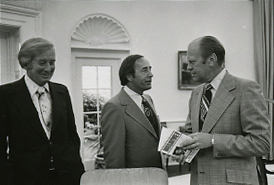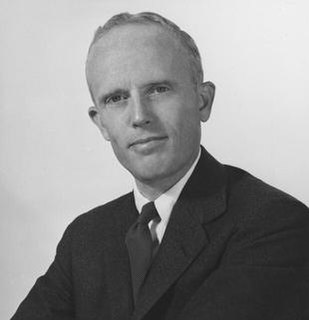A Quote by J. I. Packer
Wisdom is the power to see, and the inclination to choose, the best and highest goal, together with the surest means of attaining it.
Related Quotes
If you live for the highest goal, you are living a life of the spirit-whether or not you consider yourself to be on a spiritual path. If you consciously notice the larger aspects of life, always consider whether what you are doing coincides with these aspects, never forget the times when you were enlivened by the power of the highest goal, use those memories in new situations, and act with the knowledge of the support you have and the journey you are on-you will be living for the highest goal.
The name 'cherubim' means 'fullness of knowledge' or 'outpouring of wisdom'... The name cherubim signifies the power to know and to see God, to receive the greatest gifts of His light, to contemplate the divine splendor in primordial power, to be filled with the gifts that bring wisdom and to share these generously with subordinates as a part of the beneficent outpouring of His wisdom.
Wisdom and knowledge can best be understood together. Knowledge is learning, the power of the mind to understand and describe the universe. Wisdom is knowing how to apply knowledge and how not to apply it. Knowledge is knowing what to say; wisdom is knowing whether or not to say it. Knowledge gives answers; wisdom asks questions. Knowledge can be taught, wisdom grows from experience.
Religion means goal and way, politics implies end and means. The political end is recognizable by the fact that it may be attained--in success--and its attainment is historically recorded. The religious goal remains, even in man's highest experiences, that which simply provides direction on the mortal way; it never enters into historical consummation.
So that in the first place, I put for a general inclination of all mankind a perpetual and restless desire of Power after power, that ceaseth only in Death. And the cause of this is not always that a man hopes for a more intensive delight than he has already attained to, or that he cannot be content with a moderate power: but because he cannot assure the power and means to live well, which he hath present, without the acquisition of more.
As Commander-in-Chief, I take pleasure in commending the reading of the Bible to all who serve in the Armed Forces of the United States. Throughout the centuries, men of many faiths and diverse origins have found in the Sacred Book words of wisdom, counsel, and inspiration. It is a fountain of strength...an aid in attaining the highest aspiration of the human soul.
If the benevolent ruler stays in power long enough, he eventually concludes that power and wisdom are the same thing. And as he possesses power, he must possess wisdom. He becomes converted to the seductive thesis that election to public office endows the official with both power and wisdom. At this point, he begins to lose his ability to distinguish between what is morally right and what is politically expedient.





































